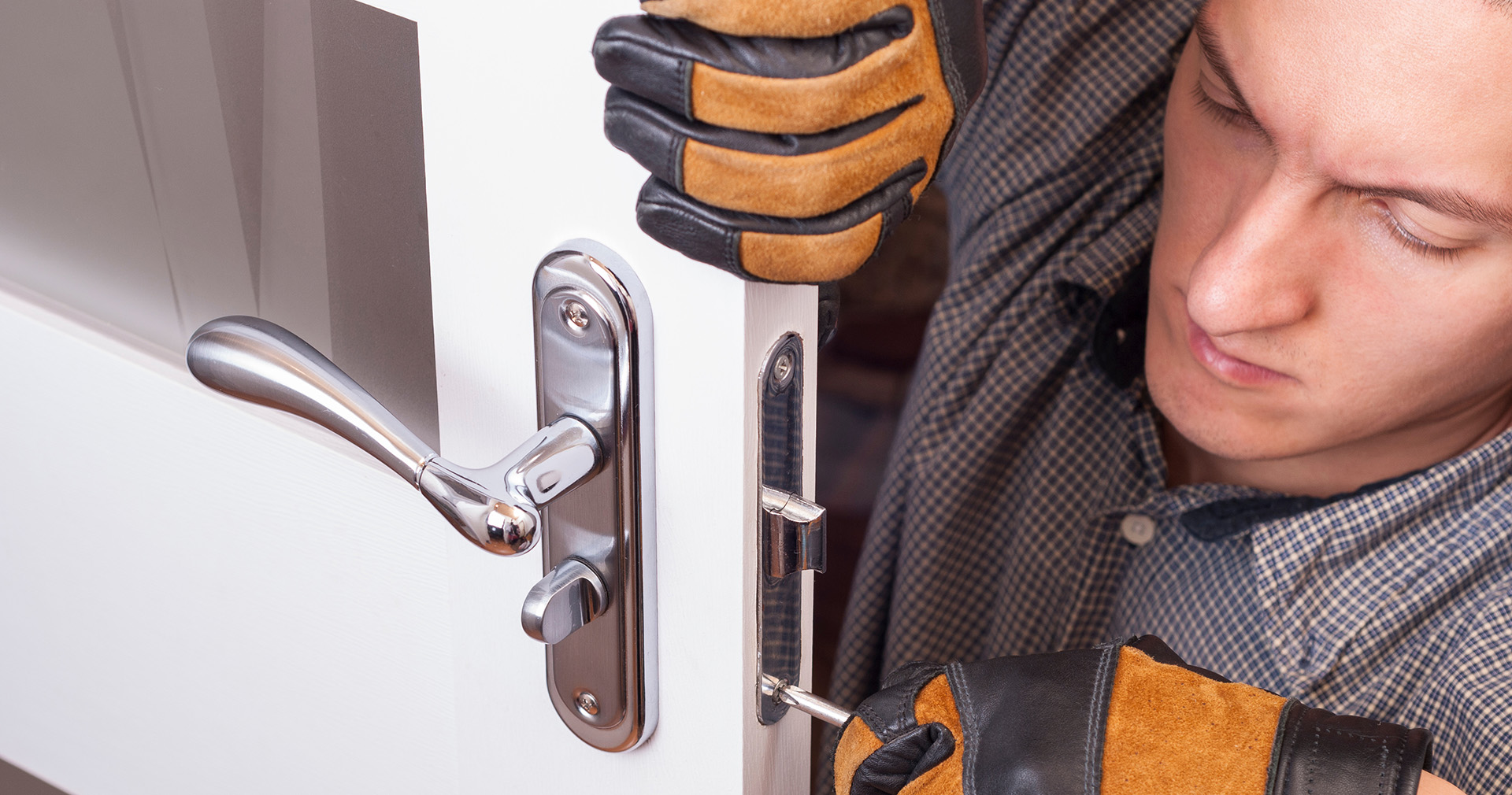
Lead generation means attracting sales contacts. This is something you might have to do for your locksmith business at some point. In fact, generating leads could be your best shot at sustainable revenue and business growth.
Marketing statistics show that lead generation is the top priority among 79% of marketers. However, generating leads is often easier said than done. Sixty-one percent of marketers rank lead generation as their number one challenge. On top of that, 79% of generated leads never convert into sales.
These stats make lead generation seem like a necessary but futile effort. But that’s not really the case.
Lead generation works—but only when done properly. There’s a method to generating quality leads. You have to target the right sources for your locksmith leads, nurture the leads you generate, and devise an airtight lead conversion strategy.
That’s what this article is all about—how to get locksmith leads. We’ll cover the following talking points:
- Why locksmith lead generation matters to your business.
- How to identify and classify locksmith leads.
- How field service management software can help you nurture quality leads.
- Proven ways of scoring exclusive locksmith leads.
Strap in for an eye-opening read.
How Do Locksmith Leads Benefit Your Business?

Before we get started on the ways to generate locksmith leads, let’s get the basics out of the way.
First off, what is a locksmith lead? And follow-up question: why is lead generation important to your locksmith business?
Check out this Locksmith Invoice template by Service Fusion
What Is a Locksmith Lead?
A lead is a prospective or potential customer—in this case, an individual or organization that expresses interest or readiness to engage with your locksmith company. For example, a lead could be someone who shares their email with your locksmith company, visits your website, or follows the business on social media. That’s what we mean by “interest or readiness.”
All leads are not equal. Marketers have many different ways of gauging and categorizing leads. Prospects can be grouped depending on their source, level of intent, or position in the customer journey. But generally, you can classify locksmith leads as either MQL or SQL.
- Marketing Qualified Lead (MQL)
A marketing qualified lead is an individual or organization that shows the potential to become a customer with enough nurturing.
An MQL fits your buyer’s persona but is not quite ready to purchase your locksmith services. They might have clicked on your ad, visited your website, or downloaded a brochure, but that’s about it.
Most MQLs lack that strong purchase intent because they’re still trying to figure out your business. They might be open to learning more about your locksmith brand, particularly the services and solutions it offers. So, a bit of nurturing could strengthen their interest in your business.
- Sales Qualified Lead (SQL)
A sales qualified lead is a prime candidate for purchasing your locksmith services. These are people or companies who’ve engaged with your business on several occasions and seem serious about buying.
An SQL is a potential customer at the end of the consideration stage. They have enough information about your business, the right motivation, and the spending power to place an order. All that’s missing is the final nudge to make the decision.
You can make this push with sales-focused content and support. Showing SQLs locksmith product/service comparisons, job quotes, and case studies might just do the trick.
Classifying leads as SQL or MQL helps you measure each lead’s likelihood of buying. It also tells you each lead’s position on the customer journey and the appropriate marketing efforts to move them along.
Why Are Leads Important?
Your locksmith business obviously needs customers to survive. But US customers have a choice of over 24,000 locksmiths. Lead generation helps you attract potential customers away from waiting competitors.
Without leads, your business might have trouble scoring locksmith jobs or growing its enterprise. “No leads” could even mean “no sales.”
Lead generation builds your brand’s visibility, credibility, and interest in groups of people that might actually need your locksmith services. More specifically, here are six reasons why your locksmith company needs a solid lead generation strategy:
Drive Brand Awareness and Market Presence
Lead generation exposes your locksmith brand to its target market. This exposure drives brand awareness among the relevant audiences. For instance, lead generation efforts could bring your ideal customers (contractors, homeowners, builders, building managers, etc.) within reach.
Grow Your Following
Lead generation can help your locksmith business gain a loyal following, especially on social media. An online following provides you with a large audience, which you can use to engage potential customers. Such engagements are a great way to promote your locksmith services too.
Build Customer Reviews
Social proof is vital in convincing customers to buy services or products. Customers trust online reviews as much as personal recommendations. And up to 90% of customers read online reviews before visiting a business.
Engaging leads can help your business gather lots of online reviews and testimonials. Do this by encouraging your website visitors or social media followers to rate or share their experiences with your locksmith brand.
Generate New Business Opportunities
The ultimate goal of lead generation is to boost sales. For your locksmith business, that means more lock installation, servicing, or repair jobs. The more potential customers you engage, the higher your chances of making sales.
Boost Cash Flow and Revenue
More business opportunities translate to more revenue. That way, you can keep the cash flow and net profit in the green.
Justify Marketing ROI
Lead generation goes hand in hand with marketing. Think of lead generation as a more targeted form of marketing. If general marketing is fishing, lead generation is baiting the hook with the best lure.
By targeting prospects, lead generation maximizes marketing performance while minimizing costs. Plus, you can easily measure your lead generation ROI using metrics such as:
- Contact-to-lead conversion rate
- Lead-to-customer conversion rate
- Time to conversion
- Cost per conversion
- Average lead value
- Speed to lead
FROM ONE OF OUR PARTNERS: Five Ways to Improve Your Speed to Lead
Shorten the Customer Journey
Interested or ready-to-buy customers need much less persuading than the general audience. High-quality leads take a shorter customer journey, making for faster conversions and sales. This is because you don’t have to start your sale pitch from square one.
How Many Leads Does Your Locksmith Business Need?
In many ways, lead generation is essential for driving business success. But exactly how many leads do you need to reap the rewards of lead generation?
Well, that depends on your lead generation performance vs. the targeted profits.
To get the right figure, you must consider your lead conversion rate, how long it takes to convert one lead, the value each lead yields, and your profitability goals. Here’s a practical scenario illustrating how to calculate lead demand:
Let’s say that out of 400 monthly sales contacts, 100 convert into sales-qualified leads, and 40 actually buy your locksmith services. Return-wise, each sale generates $1,000 in gross profit. Meanwhile, each contact costs $10.
In this example, how many leads would you need to net $50,000 per month?
First, calculate each lead’s average ROI.
The value per lead – cost per lead (1,000-100) = 900
Second, calculate how many sales you’d need to net $50,000.
Target profit / Profit per lead (50,000/900) = 55.5 ≈ 56
Third, calculate how many SQLs you’d need to close 56 sales.
SQL-to-customer conversion rate * Target sales (56*100/40) = 140
Finally, calculate how many contacts you’d need to get 140 SQLs.
Contact-to-SQL conversion rate * Target SQLs (140*400/100) = 560
In this scenario, you’d need to generate 560 leads in order to net $50,000 each month. But keep in mind that this is a simplified example. More variables might come into play, but the math is basically the same.
Do You Want More Residential or Commercial Locksmith Leads?

Knowing your target audience or ideal customer matters a great deal when it comes to lead generation.
Let’s go back to our fishing analogy of lead generation. You must bait the hook with the lure you know will attract the fish you hope to catch. And not only that, you must throw the hook in the lake, pond, or river where the fish like to swim.
That’s why the target audience is so important. If you’re hoping to attract high-quality leads relevant to your locksmith business, you must use the proper techniques and channels.
With locksmith services, you’ll be targeting either residential or commercial leads.
Residential Locksmith Leads
For residential leads, you’ll mainly be targeting homeowners, tenants, and residential building managers. These are the customer segments most likely to be interested in residential locksmith services. Such services include one-time lock installations and repairs for domestic doors, windows, and gates.
Residential leads are quick to convert since the customer doesn’t need to know much about your company. What they mostly care about is whether you can deliver.
On the downside, residential locksmith leads yield only short-term customer value. Repeat business and up-selling/cross-selling opportunities are very limited.
FROM ONE OF OUR PARTNERS: 3 Ways To Turn One-Time Customers Into Lifetime Customers
Commercial Locksmith Leads
Commercial locksmith leads fall in the realm of B2B interactions. A commercial lead could be a contractor, door/safe/gate manufacturer, or an institution looking for locksmith products or services.
B2B leads take a much longer customer path. This is because there’s much to consider and more than one decision-maker involved in the purchase.
The good thing is that the patience really pays off.
Most B2B leads convert into long-term customers. And many of them buy in bulk.
Residential vs. Commercial Locksmith Leads
Should you go for commercial or residential locksmith leads?
That depends on your business model. Most local locksmith businesses focus on residential services. But you can set your brand apart and go for big fish in the commercial pool.
Besides, there’s no problem with offering both residential and commercial locksmith services. If anything, you’ll have two hooks on one fishing line.
What Can Field Service Management Software Do to Help You Manage Locksmith Leads?

Field Service Management (FSM) software tools help service-centric businesses take control of their field operations. For locksmith companies, field services may include dispatching locksmiths, tracking inventory, managing work orders, and dealing with customer billing and payments.
An FSM application essentially puts all your locksmith operations on a single pane of glass. With just a few clicks, you can optimize various aspects of your enterprise and get an eagle-eye view of the entire business.
But what does this have to do with lead management?
Part of FSM’s capabilities is managing customer experiences and expectations. To some extent, robust FSM software double as customer relationship management (CRM) systems. Some even integrate with third-party CRM platforms.
Lead management is all about nurturing leads—bringing them closer and closer to a purchase decision. FSMs help you do that by improving customer experiences and providing insightful data on ongoing customer engagements.
Locksmiths have a variety of field management software products at their disposal. Premium FSMs in today’s enterprise software market include:
- Service Fusion – A powerful FSM with robust enterprise features designed for small and medium-sized businesses
- Fieldpoint – A complete management solution for large-scale enterprise applications
- Salesforce Field Service – A field service platform with end-to-end operations management automation
- Housecall Pro – An ERP solution targeted at home service businesses
RELATED ARTICLE: The Best Small Business Field Service Management Software Has These Features
6 Practical Ways to Generate Locksmith Leads

Now the main point of the article—how to get locksmith leads. Here are six lead generation strategies guaranteed to work for your locksmith business:
Create Irresistible Opt-In Opportunities
The most important thing you have on any lead is their contact information. It could be their email address, social media handle, home address, or phone number.
The first step in generating leads is getting the precious contact information of potential customers. From there, you can engage them directly and in a more personalized setting.
One of the most effective ways to acquire lead information is through opt-in opportunities. For instance, you can have people who visit your locksmith website sign up for free resources or perks using their email. Newsletters, webinars, special reports, how-to videos, product trials, and service memberships are excellent lures for getting potential customers to share their contact details.
Leverage Your Client List
A lead doesn’t necessarily have to be a new prospect. Do you have a list of past clients? Use that to generate leads.
A client list is an essential resource for remarketing and lead generation. Remarketing can drive repeat business opportunities, especially if your company deals with commercial locksmith services.
Stats show that businesses are 60-70% more likely to sell to existing customers compared to the 5-20% probability for new prospects.
Focus On Digital Local Marketing
A locksmith company is a localized service business. As such, it needs local visibility to attract high-quality leads. That means planting lead-generation opportunities within your service area. You can do so in the following ways:
- Optimizing your locksmith website for local SEO
- Claiming your Google Business Page
- Getting listed in online directories
- Gathering and posting online customer reviews
You can’t afford to skip on your brand’s local presence. Nowadays, most consumers search online for local service businesses. And 88% of online searches for local businesses on a mobile device end with a call or visit to a local business within 24 hours.
FROM ONE OF OUR PARTNERS: 5 Ways to Attract More Customers Through Your Company’s Website
Buy Locksmith Leads
You can buy locksmith leads. Quite literally, in fact.
A lead is basically actionable or useable information about a company or individual interested in your locksmith services. Pay-per-lead is an affiliate marketing program that essentially sells you that information. You pay the advertiser a fixed sum for each generated and/or converted lead.
PPL is a far more cost-effective and successful paid ad strategy than pay-per-click (PPC). With PPC, you pay the advertiser for each click on an ad, which may or may not be from a lead. However, PPC advertising is still an effective lead magnet in its own right.
FROM ONE OF OUR PARTNERS: 4 Ways You Can Use PPC to Increase Lead Generation
Get Social
Social media is a hotspot for lead generation. In a recent survey, 70% of marketers reported that social media helped them generate more leads.
Engagements on social media are powerful lead magnets, especially for those with a large online following.
Facebook works for both commercial and residential locksmith leads. Instagram and Nextdoor are best suited to B2C lead generation. And LinkedIn is an excellent social platform for fostering professional relationships with potential B2B clients.
Build a Lead Conversion Funnel
Many marketers argue that sourcing contacts is the easy part. The hard work begins after getting the sales contacts.
A lead is no good if it doesn’t “lead” to a sale. It’s up to you or your sales team to convert as many leads as possible into paying locksmith jobs. That means nurturing the leads through a sales funnel.
Picture a funnel with its top consisting of fresh sales contacts. The nurturing happens in the middle of the funnel. This is where you get the prospect to know and like your business more. Conversion happens at the very bottom.
That’s an overly simplified description of a sales funnel. In practice, sales funnels have multiple stages, each leading the prospect closer to the bottom. It essentially represents the customer journey and everything it takes to convince a new prospect to buy.
Start Generating Your Locksmith Leads Today

Starting a lead generation campaign for your locksmith business doesn’t take much. Here are 10 things you can do right now to attract quality locksmith prospects:
- Put up a branded locksmith website and optimize it for local search in your service area.
- Form partnerships with local businesses and institutions (realtors, homeowners associations, construction companies, schools, etc.).
- Fill out your Google Business Profile and populate it with as much information as possible about your locksmith company.
- Sign your business up on Facebook, Instagram, LinkedIn, and Nextdoor.
- Take out paid ads for lead generation (Google’s Local Service Ads, Yelp Ads, Facebook Lead Ads, etc.).
- Organize a local contest or giveaway and get people to sign up.
- Exhibit your locksmith services at local tradeshows and arrange face-to-face meetings with prospects.
- Create lead generation and management content such as newsletters, webinars, tutorials, and blog posts.
- Start a referral program.
- Offer irresistible buyer incentives such as deals and discounts on first-time locksmith services.
Lead Generation Is Key to Business Success
No matter what your business sells or how big it is, lead generation is integral to its success.
Lead generation always seems daunting at first, but it gets easier once you work it down to a system. And as you try out various lead generation methods, you’ll quickly find the techniques that work best at gathering potential customers.
The trick is learning what works for your business model and target customers.
Related Posts
The Essential Painting Equipment List for Your Business
Continue ReadingGet Inspired: Our Favorite Actual Pool Company Names
Continue ReadingStay Informed
Get the latest news and insights plus, Service Fusion offers and updates.Thank you for your submission.

SHARE